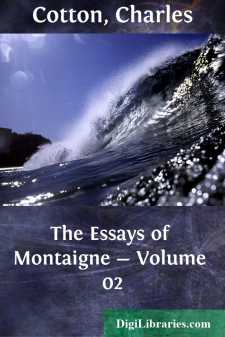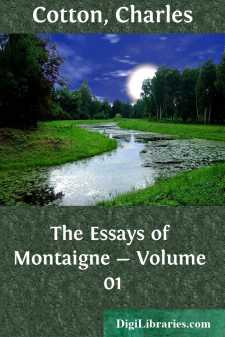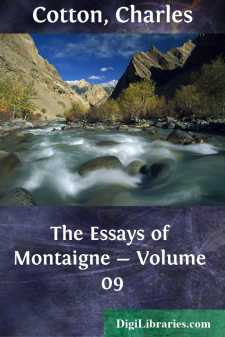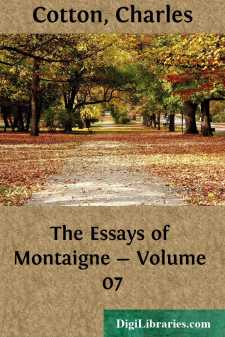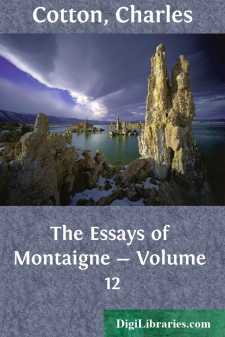Categories
- Antiques & Collectibles 13
- Architecture 36
- Art 48
- Bibles 22
- Biography & Autobiography 813
- Body, Mind & Spirit 142
- Business & Economics 28
- Children's Books 13
- Children's Fiction 10
- Computers 4
- Cooking 94
- Crafts & Hobbies 4
- Drama 346
- Education 46
- Family & Relationships 57
- Fiction 11828
- Games 19
- Gardening 17
- Health & Fitness 34
- History 1377
- House & Home 1
- Humor 147
- Juvenile Fiction 1873
- Juvenile Nonfiction 202
- Language Arts & Disciplines 88
- Law 16
- Literary Collections 686
- Literary Criticism 179
- Mathematics 13
- Medical 41
- Music 40
- Nature 179
- Non-Classifiable 1768
- Performing Arts 7
- Periodicals 1453
- Philosophy 64
- Photography 2
- Poetry 896
- Political Science 203
- Psychology 42
- Reference 154
- Religion 513
- Science 126
- Self-Help 84
- Social Science 81
- Sports & Recreation 34
- Study Aids 3
- Technology & Engineering 59
- Transportation 23
- Travel 463
- True Crime 29
Charles Cotton
Charles Cotton (1630–1687) was an English poet and writer best known for his contributions to "The Compleat Angler," a seminal work on angling authored by his friend Izaak Walton. Cotton was also recognized for his translations, particularly of Michel de Montaigne's "Essays," which introduced French Renaissance thought to English readers. Besides his literary achievements, Cotton led a colorful life marked by financial difficulties and a passion for country pursuits, including fishing and gaming.
Author's Books:
Sort by:
by:
Charles Cotton
CHAPTER I THAT MEN BY VARIOUS WAYS ARRIVE AT THE SAME END. The most usual way of appeasing the indignation of such as we have any way offended, when we see them in possession of the power of revenge, and find that we absolutely lie at their mercy, is by submission, to move them to commiseration and pity; and yet bravery, constancy, and resolution, however quite contrary means, have sometimes served to...
more...
by:
Charles Cotton
PREFACE. The present publication is intended to supply a recognised deficiency in our literature—a library edition of the Essays of Montaigne. This great French writer deserves to be regarded as a classic, not only in the land of his birth, but in all countries and in all literatures. His Essays, which are at once the most celebrated and the most permanent of his productions, form a magazine out of...
more...
by:
Charles Cotton
CHAPTER I OF PROFIT AND HONESTY No man is free from speaking foolish things; but the worst on't is, when a man labours to play the fool: "Nae iste magno conatu magnas nugas dixerit." ["Truly he, with a great effort will shortly say a mighty trifle." —-Terence, Heaut., act iii., s. 4.] This does not concern me; mine slip from me with as little care as they are...
more...
by:
Charles Cotton
CHAPTER I OF THE INCONSTANCY OF OUR ACTIONS Such as make it their business to oversee human actions, do not find themselves in anything so much perplexed as to reconcile them and bring them into the world's eye with the same lustre and reputation; for they commonly so strangely contradict one another that it seems impossible they should proceed from one and the same person. We find the younger...
more...
by:
Charles Cotton
When we judge of another's assurance in death, which, without doubt, is the most remarkable action of human life, we are to take heed of one thing, which is that men very hardly believe themselves to have arrived to that period. Few men come to die in the opinion that it is their latest hour; and there is nothing wherein the flattery of hope more deludes us; It never ceases to whisper in our ears,...
more...
by:
Charles Cotton
THE CEREMONY OF THE INTERVIEW OF PRINCES There is no subject so frivolous that does not merit a place in this rhapsody. According to our common rule of civility, it would be a notable affront to an equal, and much more to a superior, to fail being at home when he has given you notice he will come to visit you. Nay, Queen Margaret of Navarre—[Marguerite de Valois, authoress of the...
more...
by:
Charles Cotton
OF WAR HORSES, OR DESTRIERS I here have become a grammarian, I who never learned any language but by rote, and who do not yet know adjective, conjunction, or ablative. I think I have read that the Romans had a sort of horses by them called 'funales' or 'dextrarios', which were either led horses, or horses laid on at several stages to be taken fresh upon occasion, and thence it is...
more...
by:
Charles Cotton
A CONSIDERATION UPON CICERO One word more by way of comparison betwixt these two. There are to be gathered out of the writings of Cicero and the younger Pliny (but little, in my opinion, resembling his uncle in his humours) infinite testimonies of a beyond measure ambitious nature; and amongst others, this for one, that they both, in the sight of all the world, solicit the historians of their time not...
more...
by:
Charles Cotton
By how much profitable thoughts are more full and solid, by so much are they also more cumbersome and heavy: vice, death, poverty, diseases, are grave and grievous subjects. A man should have his soul instructed in the means to sustain and to contend with evils, and in the rules of living and believing well: and often rouse it up, and exercise it in this noble study; but in an ordinary soul it must be...
more...
by:
Charles Cotton
Well, but some one will say to me, this design of making a man's self the subject of his writing, were indeed excusable in rare and famous men, who by their reputation had given others a curiosity to be fully informed of them. It is most true, I confess and know very well, that a mechanic will scarce lift his eyes from his work to look at an ordinary man, whereas a man will forsake his business...
more...


